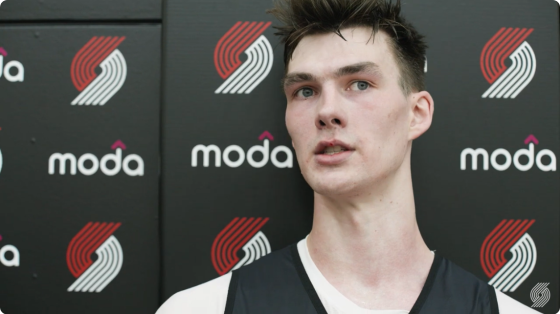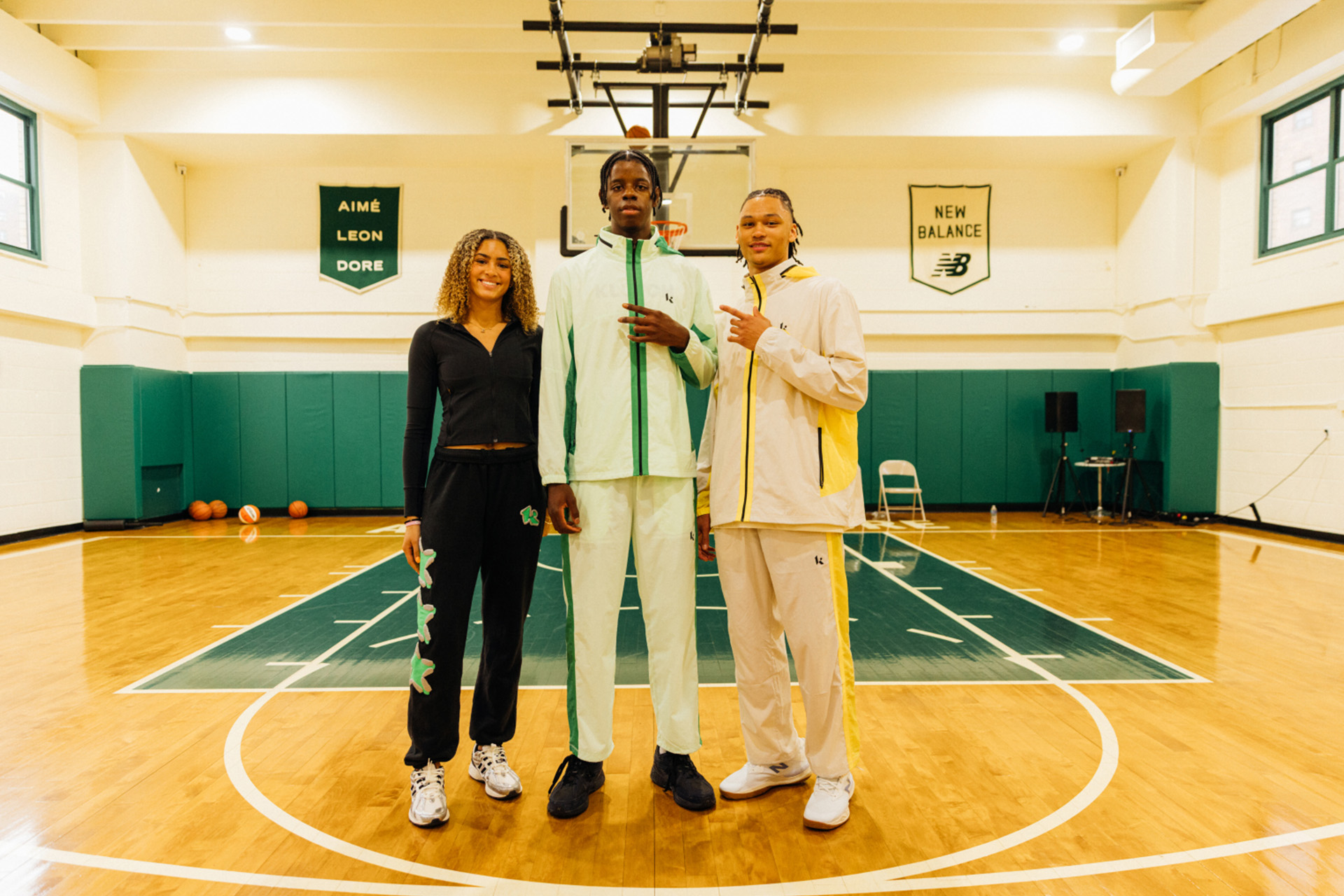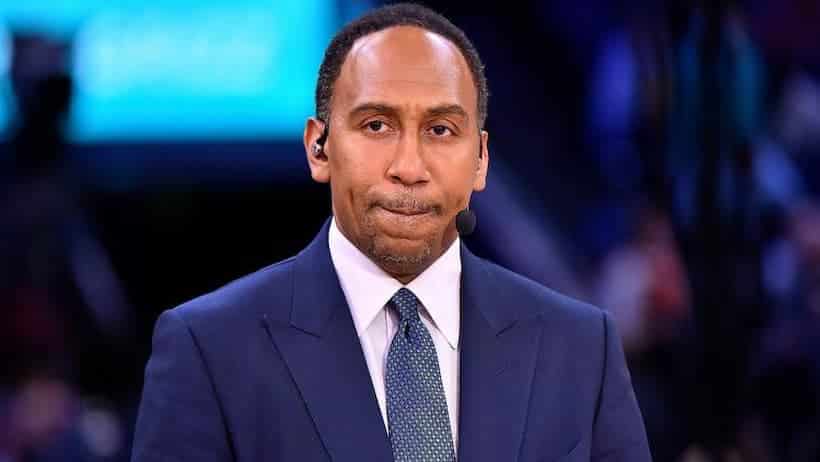Marcus Smart threaded through an era of Celtics basketball.
The Celtics tanked in Brad Stevens first season as head coach and picked Smart with the 6th pick the following summer. His arrival transitioning so quickly into winning inspired me to start writing about basketball. By the time I started covering the Celtics in-person, the league reached a point where many players were inaccessible.
Smart was different. He opened up so much and constantly impressed me as we talked chess, martial arts, music, or basketball strategy.
After Smart and I sat down for a story about some of his foundation’s efforts and aspirations to help children coping with cancer, we sat at the Auerbach Center for several minutes talking about what those months felt like watching our loved ones battle cancer. He knew the emptiness I described, how hard it became to get up daily and grappling over how to keep their memory alive in the days since they died.
Photo by Brian Babineau/NBAE via Getty Images
Smart simply got it.
He got what it meant to play in Boston, handling the scrutiny and expectations by mirroring back the same intensity the fanbase felt toward the team — once with a middle finger to the crowd, once telling the Garden Report to “STFU,” then eventually taking criticism in stride. We saw every step in that progression, until he talked to children like a friend and answered silly questions at his summer camps in the Boston area.
“Is Malcolm Brogdon coming?,” they asked.
“No, he’s not,” Smart said with a smile and light chuckle.
Jordan Walsh recently described how he heard you can quickly win Celtics fans over diving for a loose ball over dunking. Smart showed that by giving up his body on the parquet.
His unforgiving style led to many ailments. His ankle turned sideways against the Heat last spring, he jogged back on the floor in Paul Pierce-style and never seemed to fully shake that sprain or an everlasting quad injury last season. Bruises and bumps piled up. He almost always played through pain by laying on a trainer’s table, wearing a device around his back pre-game and sticking both legs in a bucket of ice after Game 6 against the Heat. He practiced jiu-jitsu to better control his body and mind, until that became an injury risk he wanted to avoid.
“Physically, I wouldn’t say 100 (percent), but I’m pretty close,” he said entering the playoffs this year. “I haven’t been able to say that in a few years, so it feels good to say that.”
The passes thrown over him that he leaped up and caught like a defensive lineman, the shots he rose to rim level to block and the acrobatic displays of athleticism and flexibility were all part of his appeal. Smart strangely mastered the intentional free throw miss. He practiced it and might’ve become better at it than any player in history — a play that might happen one handful of times all season, yet one that can steal a win. That’s why many called him a winning player. The Celtics made the playoffs every year of his career.
Smart hustled constantly, and that attribute overshadowed his former top-of-the-lottery skillset. He owned unteachable instincts and an underrated passing game. When he needed to score, he did so aggressively and quietly, averaging 15.5 points per game in his final three postseasons with Jaylen Brown and Jayson Tatum. Hitting those no, no, no, yes! threes, posting up defenders, flashing moments of finesse on the drive like his lefty finish that made Brown stare at his hand in awe.
:no_upscale()/cdn.vox-cdn.com/uploads/chorus_asset/file/24774563/1240118871.jpg)
Photo by Nathaniel S. Butler/NBAE via Getty Images
Smart was a Bostonian
No, rather, he became one, starting with his sideline discussions with Tommy Heinsohn. The Dunkin’ Donuts mascot began visiting him on his birthday, who Smart knew affectionately as Cup. His community efforts thrust him further into the heart of the city.
Each year seemingly increased the chance Smart would play his entire career in a Celtics uniform, eventually raise a championship banner, and join the franchise greats through longevity. Until he didn’t.
“Not actually getting us one (championship), that’s probably my only regret,” Smart said on Sunday in his first public comments after being part of a trade for Kristaps Porzingis. “I loved the journey that I’ve been a part of with this organization, with this team. I couldn’t ask for more. The only thing I regret is we didn’t get it when we had our chance, when I was here, but other than that, I’ve enjoyed my run. I’m very thankful to the organization, to the city, to my teammates for allowing me to be me and really taking me in, a Dallas kid from the south side, Lancaster, Texas, transferred to Flower Mound, then came up here to Oklahoma State, then came to Boston. To be able to take me, with everything I have, who I am and just allow me to be me, I say ‘thank you.’”
The specter of a trade always felt present as the core hit bumps the Celtics often survived. This year’s loss to the Heat became a sign of needed change. Smart became the player to achieve it with the Memphis Grizzlies buying high on his ability to carry the team through the Ja Morant suspension.
Anyone could imagine Brad Stevens making the Smart move at some point. Smart knew he’d get traded eventually. Few players spend their whole careers in one city. He didn’t think it’d come now. A surprise inclusion minutes before midnight felt about as unceremonious of an exit for a player so tenured and beloved in Boston.
“I was expected to get traded,” he told CLNS Media. “I figured it would come, [but] not this early, but like I said, they felt like they could make a move now and that’s all you can ask for … I’ve been here for nine years, Jaylen (Brown) and Jayson (Tatum) have been for (six) years together. Eventually, when you get that far and you don’t win, you tend to get reassembled, and I knew it wasn’t the Jays.”
Moments earlier, Smart danced along the baseline at The 14 League a weekend tournament promoting his YGC Global brand, which supports his YoungGameChanger foundation efforts.
Smart donated rolling entertainment devices called Smart Carts that allowed kids to communicate with family members during the pandemic after becoming a regular in Boston’s Children’s Hospital. He gifted one to friend and rival Jrue Holiday, who did similar work in the Milwaukee’s Children’s Hospital.
After the trade, Smart honored his camp appearances in Texas and Massachusetts last week. He greeted long lines of children at both events for photos and autographs. A Celtics employee called Smart the most down-to-earth athlete or celebrity he ever met in TD Garden, saying please and thank you in ways other players didn’t. Long-time Celtics PR vice president Jeff Twiss arrived with a gift, sharing his admiration. Smart spoke like a statesman in many interviews, for the team and the city, and left some charitable contributions unsaid.
Smart’s journey from an aggressive shot-seeker to a disciplined point guard often conflicted fans. Many argued for and against his exploits until the day he left, leaving the fans almost evenly split. He never declined an opportunity to assert his impact on the team, often describing the beauty of what he provides on the court with a smile. He could’ve cracked Joel Embiid’s head open in a scuffle but chose not to. “Growth,” he called it.
Smart never lacked confidence, and that invigorated some and frustrated others. He talked the team through timeouts in the huddle, and always spoke his mind on team decisions. Most recently, he defended his head coach when Joe Mazzulla came under fire in the second round.
“Joe is learning, just like all of us. I know he’s been killed a lot — rightfully so. You know, he needs to make some adjustments. And he did that,” Smart said after Game 6 against Philadelphia. “And that’s all you can ask for.”
The Celtics could never find out the impact of mixing up its core if they never tried, and made a bold, difficult decision by trading both a valuable passer and defender, but most importantly, their culture-setter. Will his absence naturally ascend the Jays to embracing leadership? Will it create a chasm? They’ll soon find out, though Stevens and Mazzulla both asserted the team’s leadership-by-committee approach as capable of surviving the loss.
The organization prides itself on the tradition that Smart embodied. He sported the team’s color in his hair and inspired some children at last week’s camps to do the same. He spoke when he felt it necessary. Tatum called Smart his favorite teammate. Brown lauded how Smart did little things so the team’s two stars didn’t have to. They both included him in the team’s SI photoshoot to open last season. They knew how important he was.
Porzingis may rank higher among the league’s players in talent, and many NBA championships get decided by aggregate skill on a roster. If it helps the team, Smart said he understands and respects the decision.
However, some teams fail to become the sum of their parts and while Porzingis may bring skills and a physique Smart lacked, Boston sacrificed leadership, connectivity and culture. If they raise the banner in spite of that, nobody, including Smart, will shed a tear. Many, including Tatum, wanted Smart to be part of it and vowed to reunite with Smart one day.
“It’s going to be fun for those guys. It’s going to be challenging,” Smart said. “There’s going to be ups and downs, but that’s the beauty about growth. It’s another part of their game that they’re just going to continue to evolve in. Even though I won’t be a part of it, I’m still proud of those guys, and I can’t wait to see the growth that they come in. I’m excited to see the next step that they take in their games. Not from a basketball standpoint of on the court but a leadership role, and really taking over this team.”






